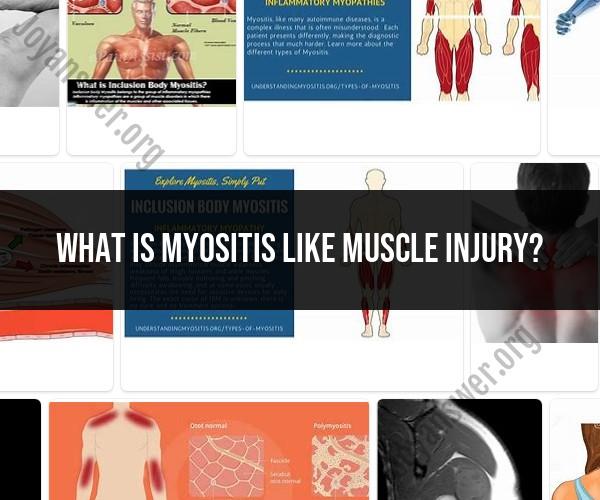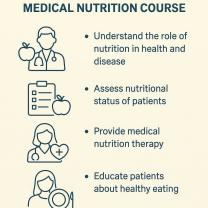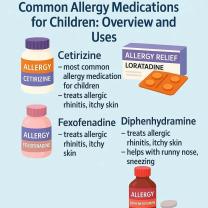What is myositis like muscle injury?
"Myositis" and "muscle injury" are two distinct conditions that affect muscles, but they have different causes, symptoms, and treatments. It's important to understand the differences between these two conditions to ensure accurate diagnosis and appropriate treatment. Let's explore the contrasts between myositis and muscle injury:
Myositis:
- Cause: Myositis refers to inflammation of the muscles. It can be caused by autoimmune disorders, where the immune system mistakenly attacks healthy muscle tissues. Polymyositis and dermatomyositis are examples of autoimmune-related myositis.
- Symptoms: Common symptoms include muscle weakness, pain, and fatigue. People with myositis may experience difficulty with activities that require muscle strength, such as climbing stairs or lifting objects.
- Diagnosis: Diagnosis involves physical examination, blood tests to check for muscle enzyme levels, and possibly a muscle biopsy to confirm inflammation.
- Treatment: Myositis is typically treated with immunosuppressant medications to reduce inflammation and manage the autoimmune response. Physical therapy and exercise programs are also essential to maintain muscle strength and function.
Muscle Injury:
- Cause: Muscle injuries occur due to trauma, overuse, or excessive strain on a muscle. Common causes include sudden muscle contractions, falls, sports-related activities, or repetitive motions.
- Symptoms: Symptoms depend on the severity of the injury but may include pain, swelling, bruising, and limited range of motion. Mild injuries may result in muscle soreness, while severe injuries could lead to muscle tears or strains.
- Diagnosis: Diagnosis is often based on the patient's medical history, physical examination, and imaging tests such as X-rays or MRI scans.
- Treatment: Treatment for muscle injuries involves rest, ice, compression, and elevation (RICE), along with pain management. Physical therapy may also be recommended to aid in recovery and prevent future injuries.
In summary, myositis involves inflammation of muscles due to autoimmune processes, leading to muscle weakness and pain. Muscle injuries, on the other hand, result from physical trauma or overuse, causing pain and functional impairment. It's important to consult a healthcare professional for a proper diagnosis if you suspect you have myositis or a muscle injury. They can recommend appropriate treatments and therapies tailored to your condition.











